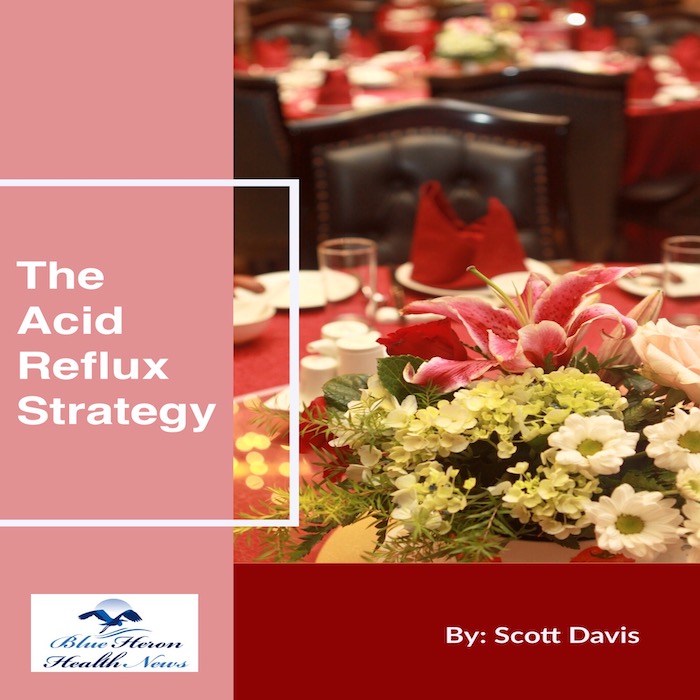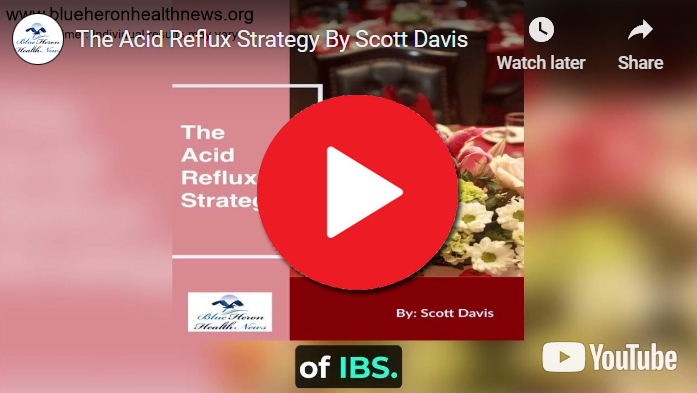
Acid Reflux Strategy™ By Scott Davis According to this eBook, you can start removing the symptoms of acid reflux and other similar problems just by making some changes in your diet, levels of stress, and lifestyle. It will guide you on how to change from the combination of food items to the sleep positions to relieve your problems. It also includes a list of food items you should focus on while shopping for it to find a natural treatment for your symptoms.
How can smoking affect acid reflux?
Smoking can significantly exacerbate acid reflux, also known as gastroesophageal reflux disease (GERD). This condition occurs when stomach acid flows back into the esophagus, causing symptoms like heartburn, chest pain, and regurgitation. The relationship between smoking and acid reflux involves several mechanisms:
1. Relaxation of the Lower Esophageal Sphincter (LES)
The lower esophageal sphincter (LES) is a ring of muscle that acts as a valve between the esophagus and the stomach. It opens to allow food and liquid to enter the stomach and closes to prevent stomach contents from refluxing into the esophagus. Smoking can weaken or relax the LES, making it less effective at keeping stomach acid in the stomach. This can lead to increased episodes of acid reflux.
2. Increased Stomach Acid Production
Nicotine, a key component of tobacco, stimulates the production of stomach acid. Higher levels of stomach acid can increase the likelihood of acid reflux, as the excess acid is more likely to escape into the esophagus, especially if the LES is weakened.
3. Reduction in Saliva Production
Saliva helps to neutralize stomach acid and clear it from the esophagus. Smoking reduces saliva production, which can lead to prolonged exposure of the esophagus to stomach acid. This prolonged exposure can increase the risk of esophagitis (inflammation of the esophagus) and other complications of acid reflux.
4. Impaired Esophageal Motility
Smoking can affect the motility of the esophagus, slowing the movement of food and acid down the esophagus and into the stomach. This impaired motility can contribute to the retention of acid in the esophagus, increasing the risk of reflux symptoms.
5. Delayed Gastric Emptying
Smoking can slow the rate at which the stomach empties its contents into the small intestine. This delayed gastric emptying can increase the pressure within the stomach, making it more likely that acid will reflux into the esophagus.
6. Increased Risk of Complications
Chronic smoking not only exacerbates acid reflux symptoms but also increases the risk of complications associated with GERD. These complications can include:
- Esophagitis: Inflammation and irritation of the esophagus lining due to repeated acid exposure.
- Barrett’s Esophagus: A condition in which the lining of the esophagus changes, increasing the risk of esophageal cancer.
- Esophageal Strictures: Narrowing of the esophagus due to scar tissue formation from repeated damage.
7. Interference with Medications
Smoking can interfere with the effectiveness of medications used to treat acid reflux, such as proton pump inhibitors (PPIs) and H2 blockers. These medications work by reducing stomach acid production, but smoking can counteract their effects, making treatment less effective.
Conclusion
Quitting smoking is one of the most effective lifestyle changes that can help manage acid reflux symptoms and reduce the risk of associated complications. The benefits of quitting smoking for acid reflux include improved LES function, reduced stomach acid production, increased saliva production, and overall improved gastrointestinal health. Additionally, quitting smoking has numerous other health benefits, including reduced risk of heart disease, cancer, and respiratory conditions. For individuals struggling with smoking cessation, seeking support from healthcare providers, smoking cessation programs, and support groups can be invaluable.
How does alcohol consumption impact acid reflux?
Alcohol consumption can significantly impact acid reflux, also known as gastroesophageal reflux disease (GERD), by affecting various physiological mechanisms in the body. GERD is a condition where stomach acid flows back into the esophagus, causing symptoms like heartburn, chest pain, and regurgitation. The following are the key ways in which alcohol can exacerbate acid reflux:
1. Relaxation of the Lower Esophageal Sphincter (LES)
The lower esophageal sphincter (LES) is a crucial muscle that acts as a barrier between the stomach and esophagus. It opens to allow food and liquid to enter the stomach and closes to prevent stomach contents from refluxing into the esophagus. Alcohol can relax the LES, making it less effective at keeping stomach acid in the stomach. This relaxation of the LES increases the likelihood of acid reflux.
2. Increased Stomach Acid Production
Alcohol can stimulate the production of stomach acid, particularly in the gastric mucosa, the lining of the stomach. An increase in stomach acid can exacerbate acid reflux symptoms, as there is more acid available to reflux into the esophagus, especially if the LES is weakened.
3. Irritation of the Esophageal Lining
Alcohol itself can be an irritant to the lining of the esophagus. Frequent consumption of alcohol can damage the mucous lining of the esophagus, making it more sensitive to stomach acid and exacerbating symptoms of acid reflux. This irritation can lead to inflammation, known as esophagitis, which can cause pain and discomfort.
4. Delayed Gastric Emptying
Alcohol can slow down the rate at which the stomach empties its contents into the small intestine. This delayed gastric emptying can increase the pressure inside the stomach, which can push stomach contents, including acid, back into the esophagus. This is particularly problematic after consuming large meals or high-fat foods, which also slow gastric emptying.
5. Impact on Saliva Production
Saliva helps neutralize stomach acid and wash it away from the esophagus. Alcohol consumption can reduce saliva production, leading to less neutralization of acid and more prolonged exposure of the esophagus to stomach acid.
6. Increased Sensitivity to Acid
Alcohol can increase the sensitivity of the esophagus to stomach acid. This means that even normal amounts of acid in the esophagus can cause more significant discomfort and symptoms in individuals who consume alcohol regularly.
7. Alcohol Types and Their Effects
Different types of alcohol may have varying effects on acid reflux. For example:
- Wine and Beer: These alcoholic beverages are acidic and can directly increase stomach acid production, worsening reflux symptoms.
- Spirits and Mixed Drinks: High-alcohol-content beverages can be more irritating to the esophagus and stomach lining. Additionally, mixers such as citrus juices, sodas, and sugary syrups can further exacerbate reflux symptoms.
8. Complications and Long-Term Effects
Chronic alcohol consumption can lead to more severe forms of GERD and associated complications, such as:
- Esophagitis: Chronic inflammation of the esophagus due to repeated acid exposure.
- Barrett’s Esophagus: A condition in which the lining of the esophagus changes due to prolonged acid exposure, increasing the risk of esophageal cancer.
- Esophageal Strictures: Narrowing of the esophagus caused by scar tissue from repeated damage, which can lead to difficulty swallowing.
Managing Alcohol Consumption and Acid Reflux
To manage acid reflux effectively, individuals who consume alcohol may need to consider the following strategies:
- Limit or Avoid Alcohol: Reducing alcohol intake or abstaining altogether can significantly reduce acid reflux symptoms.
- Choose Lower-Acid Options: If consuming alcohol, choosing drinks with lower acidity and alcohol content may help minimize symptoms.
- Moderation and Timing: Consuming alcohol in moderation and avoiding drinking close to bedtime can help reduce the risk of reflux.
- Accompanying Foods: Avoiding heavy, fatty, or spicy foods while drinking can help reduce the likelihood of reflux.
- Stay Upright: Maintaining an upright position for a few hours after consuming alcohol can help prevent acid from refluxing into the esophagus.
Alcohol consumption can exacerbate acid reflux by relaxing the LES, increasing stomach acid production, irritating the esophageal lining, delaying gastric emptying, and reducing saliva production. Limiting or avoiding alcohol, choosing less irritating beverages, and moderating intake can help manage acid reflux symptoms. For individuals who continue to experience significant symptoms despite lifestyle changes, it may be necessary to consult a healthcare provider for further evaluation and management.
Acid Reflux Strategy™ By Scott Davis According to this eBook, you can start removing the symptoms of acid reflux and other similar problems just by making some changes in your diet, levels of stress, and lifestyle. It will guide you on how to change from the combination of food items to the sleep positions to relieve your problems. It also includes a list of food items you should focus on while shopping for it to find a natural treatment for your symptoms.
